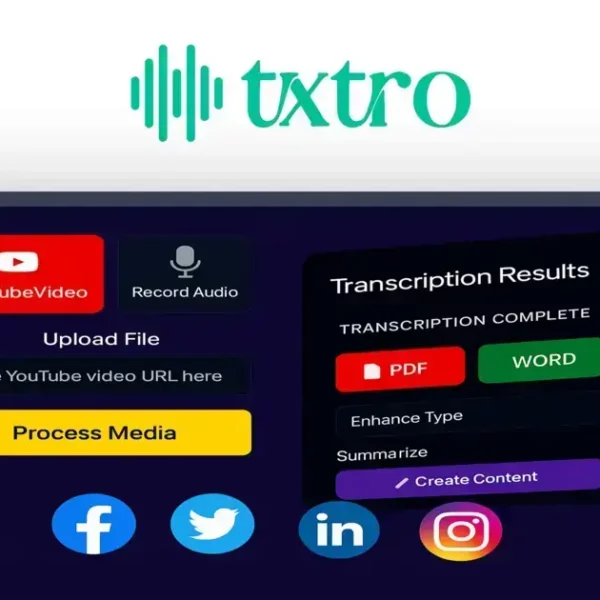Integrating CRM with marketing automation optimizes business processes, enhances customer engagement, and improves data-driven decision making. By automating routine tasks and personalizing communications, businesses can achieve higher efficiency and increased sales, making it a crucial strategy for growth.
CRM with marketing automation is transforming how businesses interact with customers and manage their marketing efforts. By combining customer relationship management with marketing automation, companies can streamline processes, improve customer engagement, and drive sales growth. In this article, we will explore the core concepts of CRM with marketing automation, its benefits, how to choose the right tools, and best practices for successful implementation.
What is CRM with Marketing Automation?
CRM with marketing automation refers to the integration of customer relationship management (CRM) systems with marketing automation tools. This synergy allows businesses to streamline their marketing efforts while enhancing customer engagement.
Essentially, a CRM system collects and organizes customer information, including contact details, purchase history, and interactions. Marketing automation, on the other hand, automates repetitive marketing tasks, such as sending emails and managing social media campaigns. When these two solutions are combined, businesses gain a powerful platform to analyze customer data and create tailored marketing strategies.
How It Works
With a CRM integrated with marketing automation, businesses can collect data during every customer interaction. This information helps in segmenting customers based on their preferences and behaviors. The system can then send personalized campaigns automatically, improving the chances of engagement and conversion.
Real-Time Analytics
One of the significant benefits of this integration is real-time analytics. It enables companies to track the success of their marketing campaigns, see which strategies are working, and make necessary adjustments on the fly. This adaptability is crucial in today’s fast-paced market.
Enhanced Customer Experience
By automating tasks and personalizing communications, businesses can provide an enhanced customer experience. Customers receive timely, relevant information that meets their needs, leading to increased satisfaction and loyalty.
Conclusion
In summary, CRM with marketing automation helps businesses work smarter, not harder. It combines customer data with marketing efforts to build strategic, data-driven campaigns that optimize communication.
Benefits of Integrating CRM and Marketing Automation

Integrating CRM and marketing automation provides numerous benefits that can significantly enhance a business’s efficiency and customer engagement.
Streamlined Processes
This integration allows organizations to streamline their marketing and sales processes. By automating routine tasks such as lead tracking and follow-ups, businesses save time and reduce the chances of human error. Employees can focus more on strategic initiatives rather than on repetitive tasks.
Improved Customer Targeting
With a combined CRM and marketing automation system, businesses gain access to rich customer data. This data enables better segmentation. Companies can target specific audiences with personalized messages, increasing the likelihood of engagement and conversion.
Enhanced Communication
The integration facilitates better internal and external communication. Marketing teams can share insights with sales teams in real time, ensuring a cohesive approach to customer interactions. When customers receive consistent messages from both marketing and sales, it enhances their overall experience.
Data-Driven Decisions
Access to comprehensive analytics plays a crucial role in decision-making. Businesses can analyze campaign performance and customer behavior, leading to informed marketing strategies. This data-driven approach helps optimize marketing efforts and increase ROI.
Higher Sales and Revenue
Ultimately, integrating CRM with marketing automation leads to higher sales and revenue. By nurturing leads more effectively and improving customer interactions, organizations can close deals faster and enhance customer loyalty. This integration is not just about efficiency; it’s a pathway to growth.
How to Choose the Right CRM with Marketing Automation
Choosing the right CRM with marketing automation is crucial for optimizing your business processes and enhancing customer interactions. Here are some key factors to consider when making your decision.
Identify Your Business Needs
Before selecting a CRM, it’s essential to identify your specific business needs. Consider the size of your business, the type of customer data you need to manage, and the marketing processes you want to automate. This understanding will guide you in selecting a solution that fits your requirements.
Evaluate Features and Functionality
Look for a CRM that offers essential features such as lead management, email marketing, and campaign tracking. Additionally, evaluate its automation capabilities. The best CRM systems should allow you to automate tasks like follow-ups and reminders to streamline your workflow.
Integration Capabilities
Ensure that the CRM can integrate seamlessly with other tools you are using, such as email marketing platforms, social media channels, and analytics tools. This connectivity helps create a cohesive environment where all your customer data resides in one place.
User-Friendliness
The usability of the CRM system is critical for team adoption. Choose a solution that is intuitive and easy to navigate to ensure your team can use it effectively. A system with a steep learning curve can hinder productivity and delay implementation.
Budget Considerations
Cost is always a factor when choosing a CRM. Look for options that provide the features you need at a price point that fits your budget. Keep in mind the potential return on investment; investing in the right CRM can lead to increased productivity and revenue.
Top CRM Tools for Marketing Automation

When selecting a CRM tool for marketing automation, there are several top options that stand out in the industry. These tools offer a range of features to help businesses streamline their marketing efforts and improve customer engagement.
1. HubSpot CRM
HubSpot CRM is a popular choice due to its user-friendly interface and powerful features. It provides tools for email marketing, content management, and social media integration. The automation capabilities allow businesses to nurture leads effectively, making it ideal for small to medium-sized enterprises.
2. Salesforce
Salesforce is one of the most comprehensive CRM platforms available. It offers extensive marketing automation functionalities, including lead scoring, campaign management, and personalized outreach. Although it can be more complex, its flexibility makes it suitable for larger organizations.
3. Zoho CRM
Zoho CRM is known for its affordability and robust feature set. It includes automation tools for workflows, email campaigns, and analytics. Additionally, Zoho integrates well with various third-party applications, enhancing its functionality.
4. Marketo
Marketo, a part of Adobe, is specifically designed for marketing automation. It provides powerful tools for lead management, email marketing, and campaign tracking. Marketo is particularly effective for larger organizations looking to run advanced marketing strategies.
5. Pipedrive
Pipedrive is a sales-focused CRM that also includes marketing automation capabilities. Its intuitive interface helps teams manage their sales processes while allowing them to automate repetitive tasks such as follow-up emails and reminders.
Best Practices for Implementing CRM with Marketing Automation
Implementing CRM with marketing automation effectively requires careful planning and execution. Here are some best practices to ensure a successful integration.
1. Start with Clear Goals
Before you begin, define clear objectives for what you want to achieve with your CRM and marketing automation. Consider factors like lead generation, customer retention, and sales growth. Setting specific goals will guide your implementation process.
2. Involve Key Stakeholders
Involve team members from different departments such as sales, marketing, and customer service when choosing a CRM system. Their input will ensure that the system meets the diverse needs of the organization and encourages team adoption.
3. Take Advantage of Training
Proper training is essential for all users. Offer comprehensive training sessions for your team to familiarize them with the CRM and automation tools. This investment in training leads to better usage and maximizes the benefits of the system.
4. Regularly Update and Maintain the System
Once implemented, keep the CRM and marketing automation tools updated. Regular maintenance and updates are crucial for ensuring the system runs smoothly and adapts to any changes in business processes.
5. Monitor Performance and Adjust
After implementation, monitor the performance of your CRM and automation strategies. Use analytics to identify what is working and what needs adjustment. Be ready to pivot strategies based on data-driven insights to optimize results.
In Conclusion: The Power of CRM with Marketing Automation
Integrating CRM with marketing automation can greatly enhance your business operations. By streamlining processes, improving communication, and making data-driven decisions, you can increase efficiency and boost sales.
Choosing the right CRM tool and implementing it effectively with best practices ensures you get the most out of your investment. Remember to involve your team, train them well, and continuously monitor your performance.
With the right approach, CRM with marketing automation can help you create stronger relationships with your customers and ultimately lead your business to greater success.
FAQ – Frequently Asked Questions about CRM with Marketing Automation
What is CRM with marketing automation?
CRM with marketing automation combines customer relationship management systems with automated marketing tools to streamline processes and improve customer interactions.
How can CRM with marketing automation benefit my business?
It enhances efficiency by automating repetitive tasks, improves customer targeting with data analysis, and helps in making informed marketing decisions.
What features should I look for in a CRM with marketing automation?
Look for features like lead management, email automation, integration capabilities, and robust reporting tools to track performance.
Is training necessary for using CRM systems?
Yes, proper training is important to ensure that team members can utilize the system effectively and maximize its benefits.
Can small businesses afford CRM with marketing automation tools?
Yes, there are cost-effective CRM solutions available that cater specifically to the needs of small businesses.
How often should I update my CRM system?
Regular updates are important to maintain efficiency, security, and to incorporate new features that can help your business grow.




